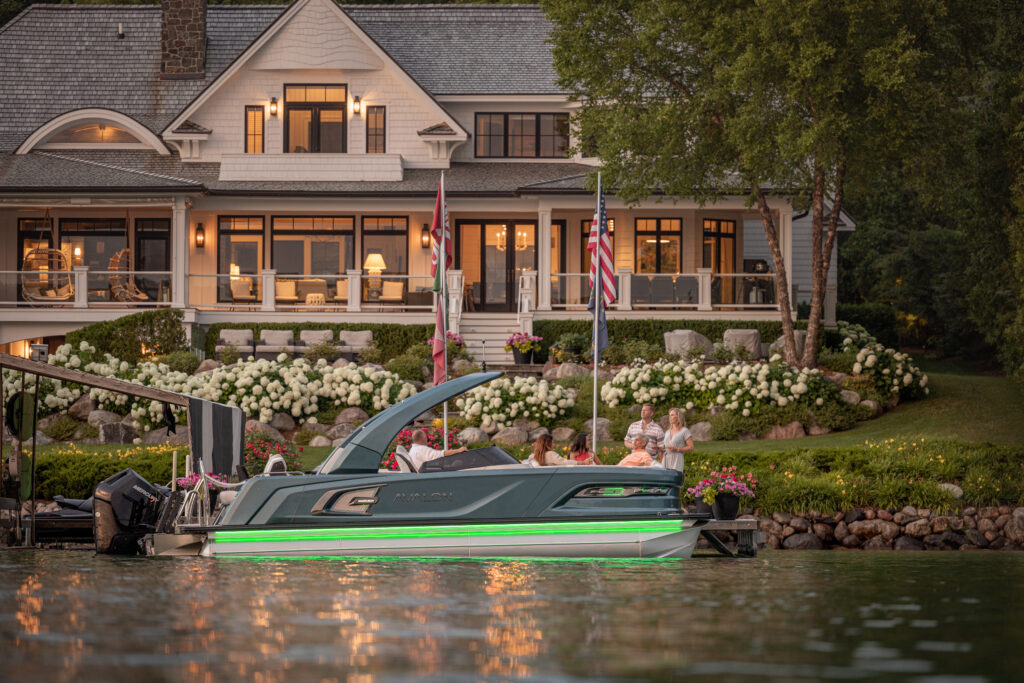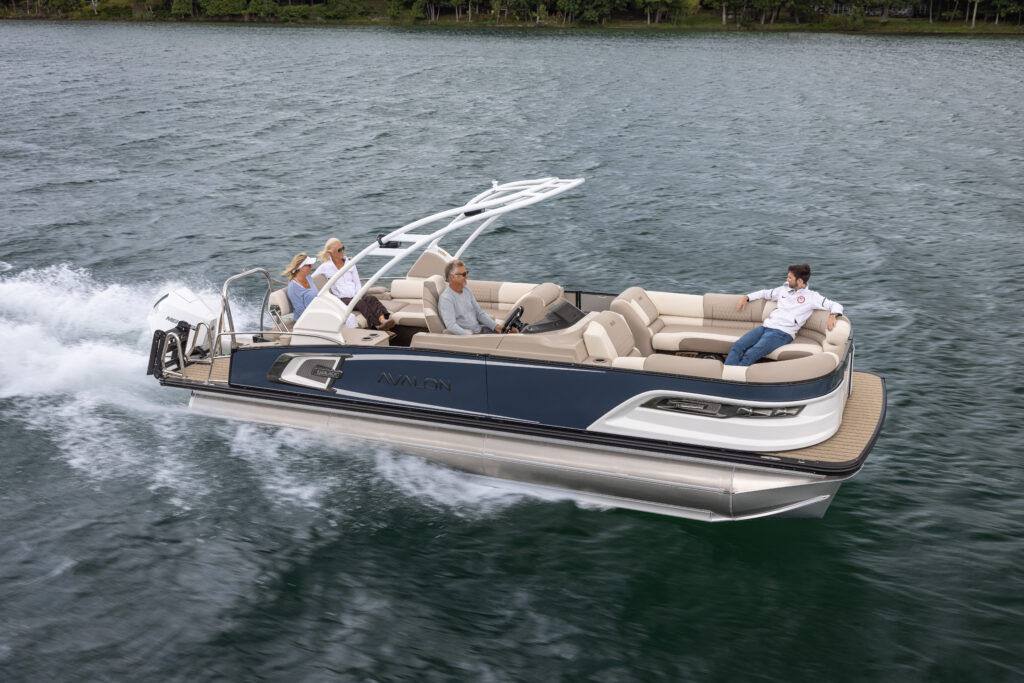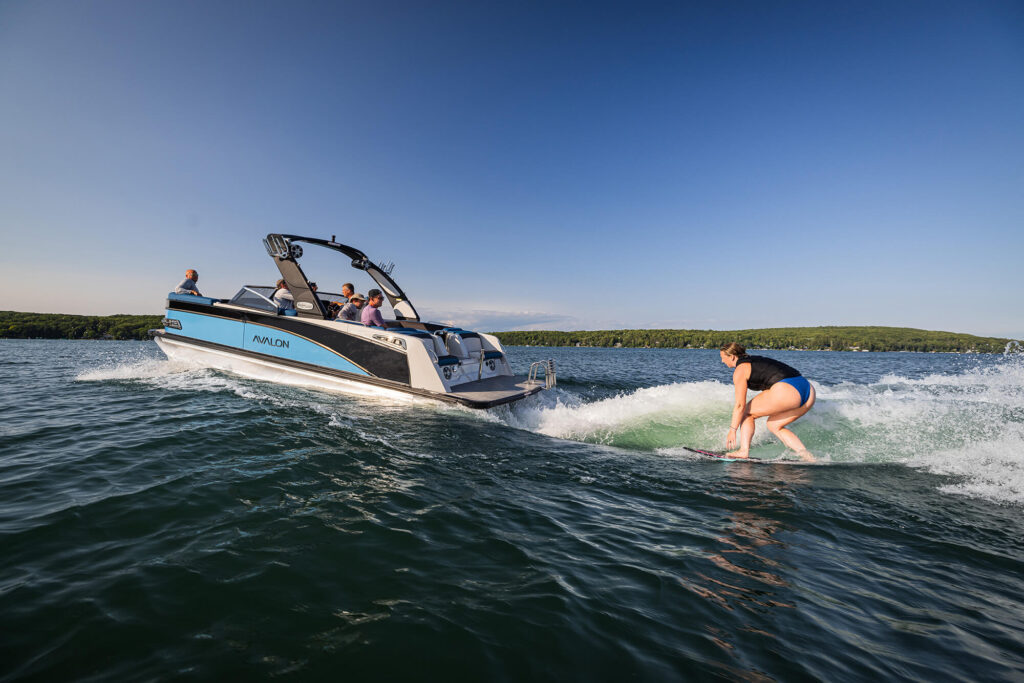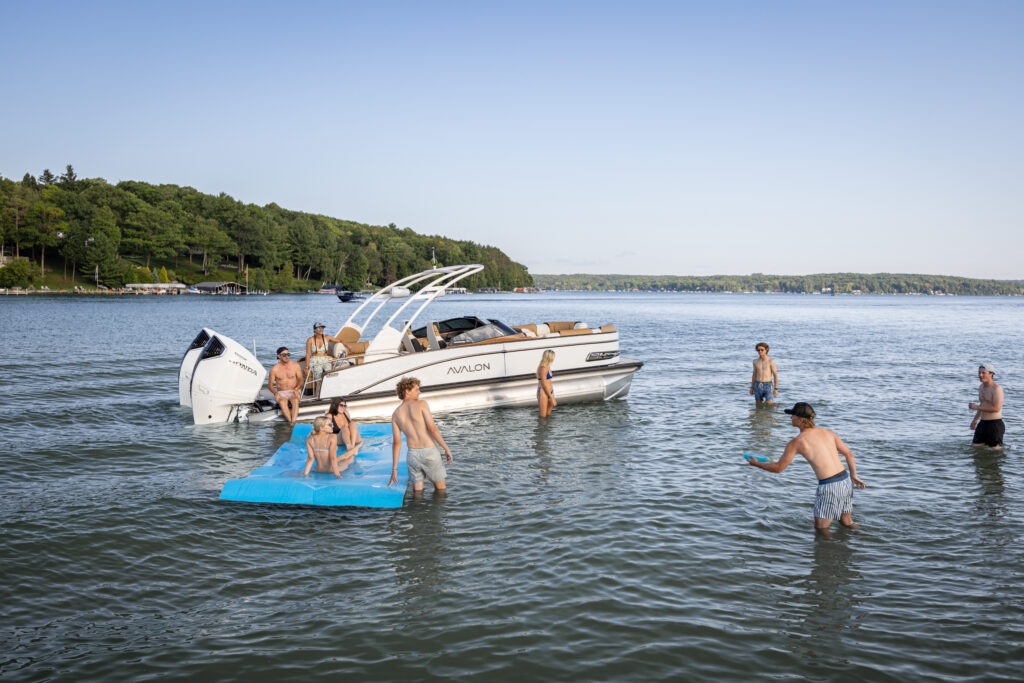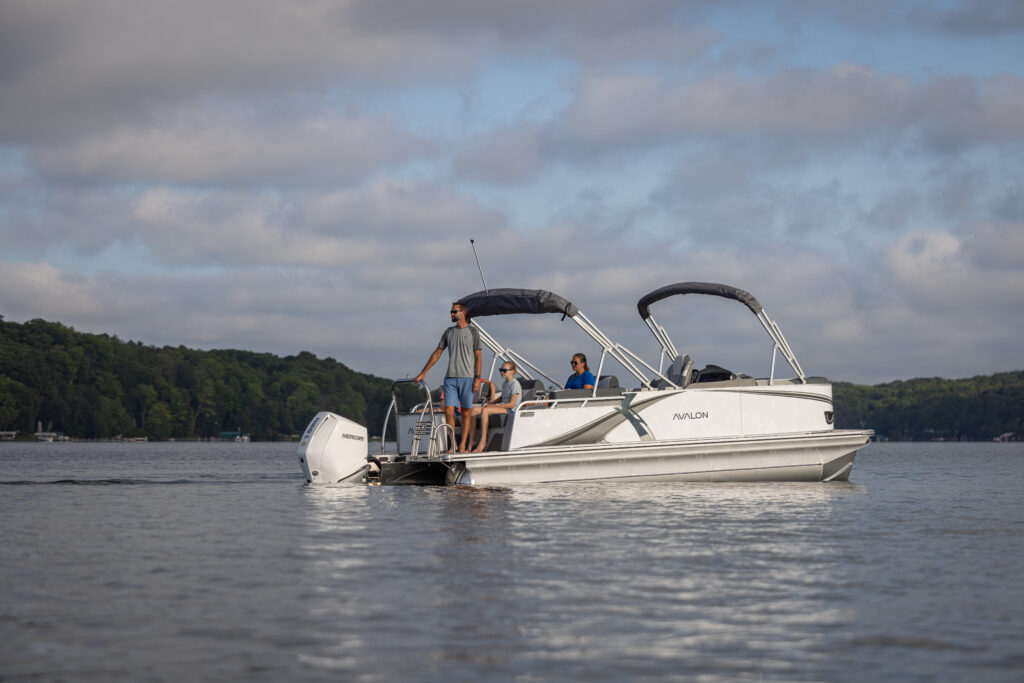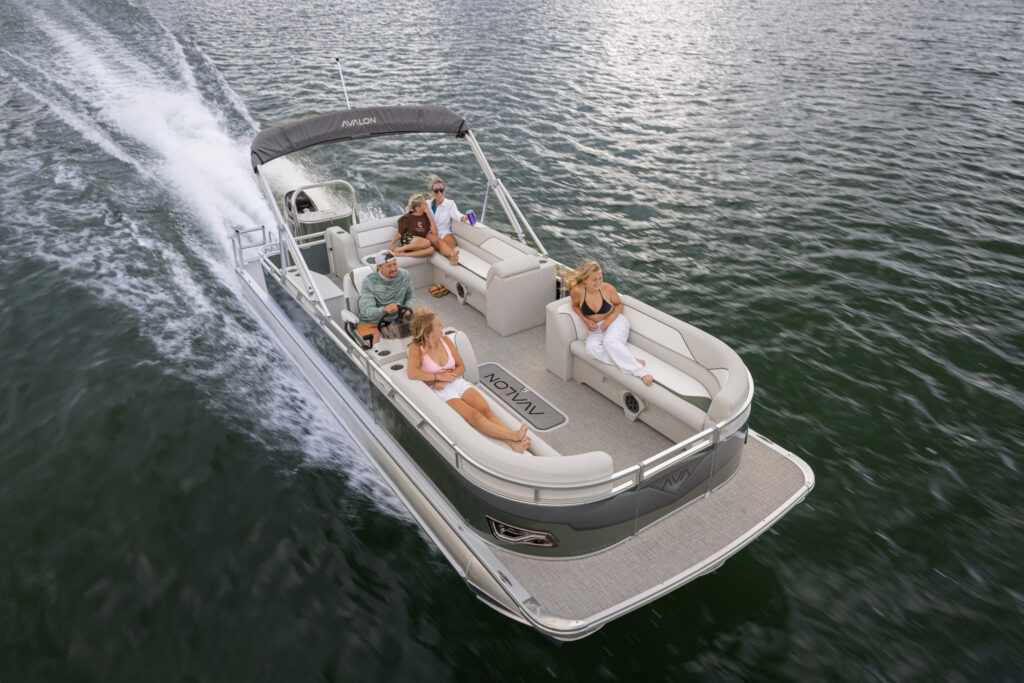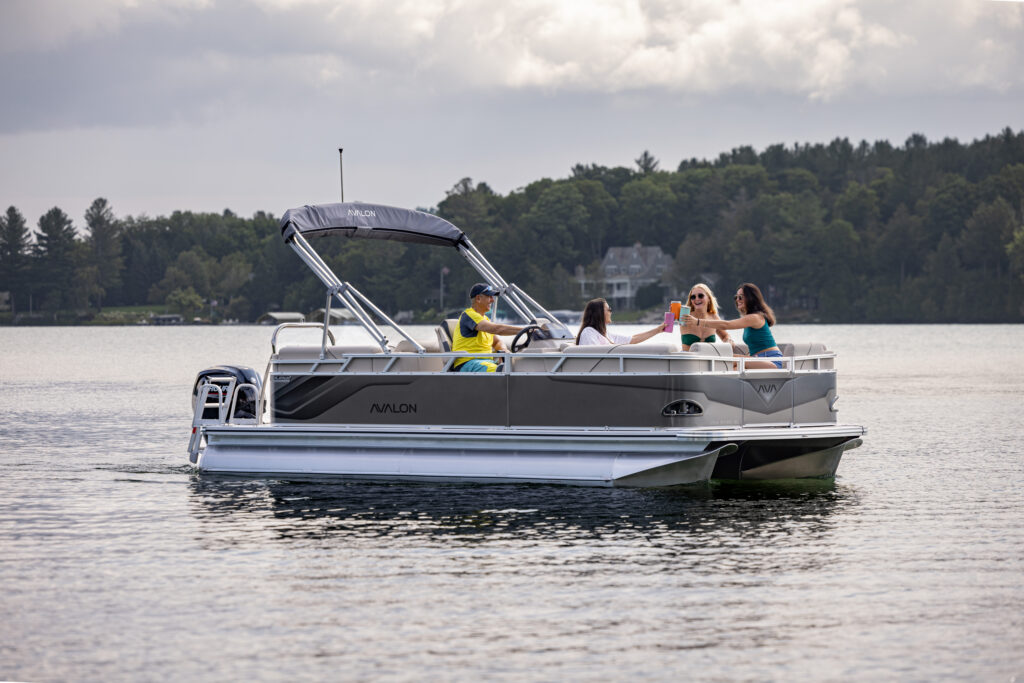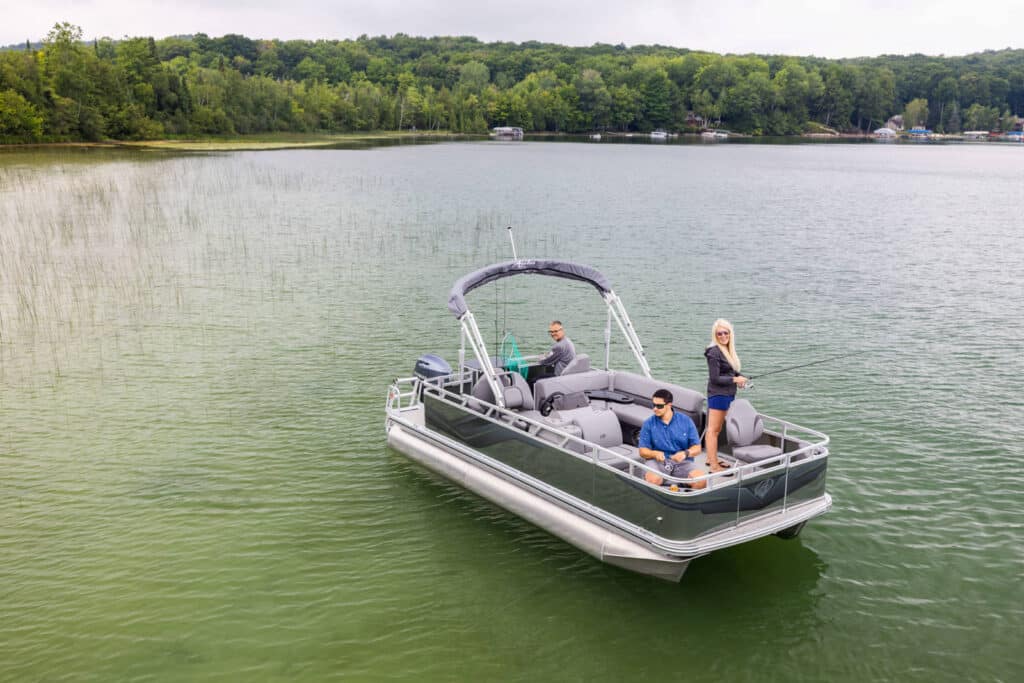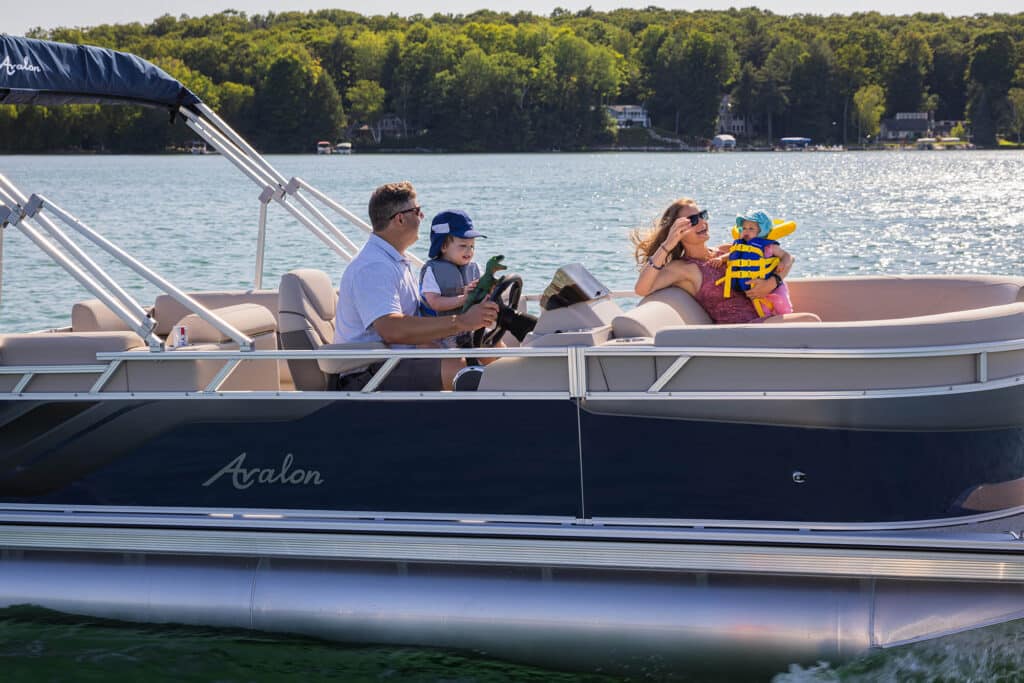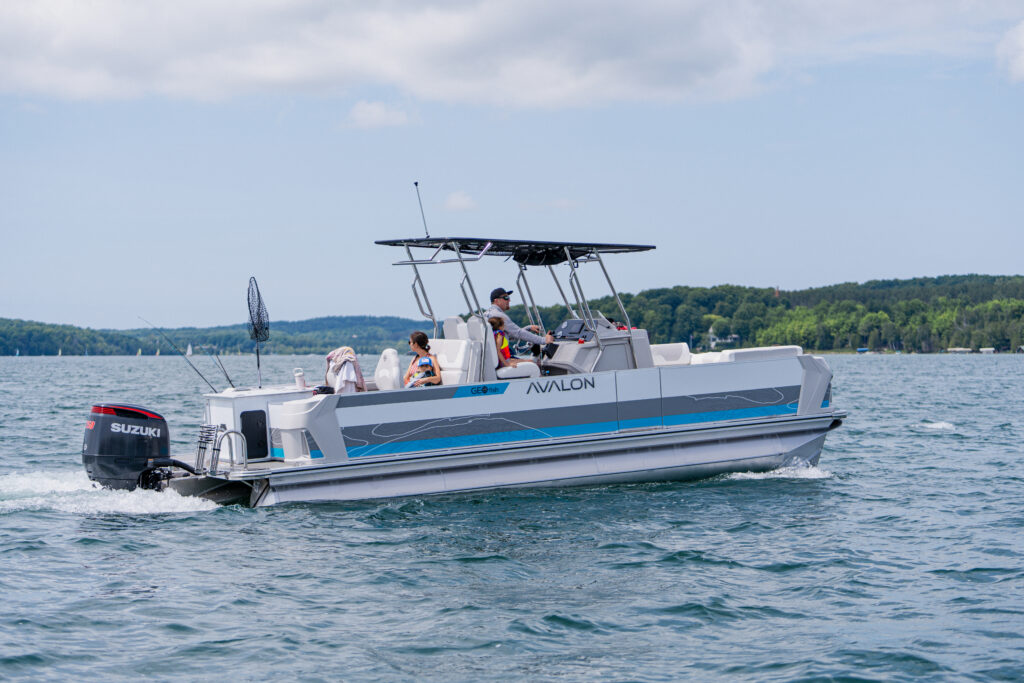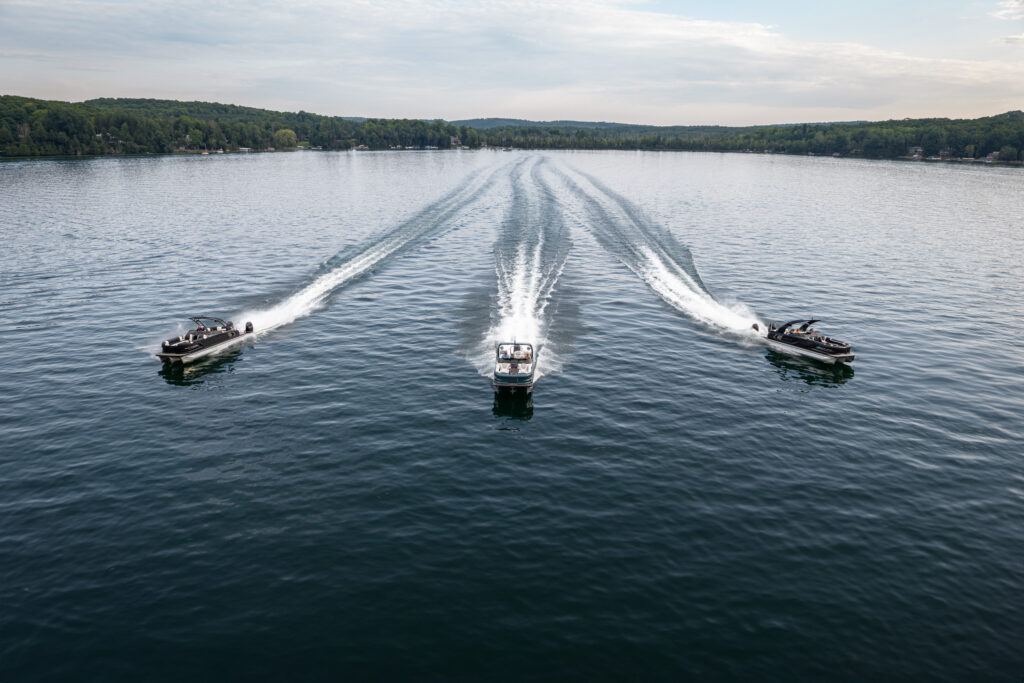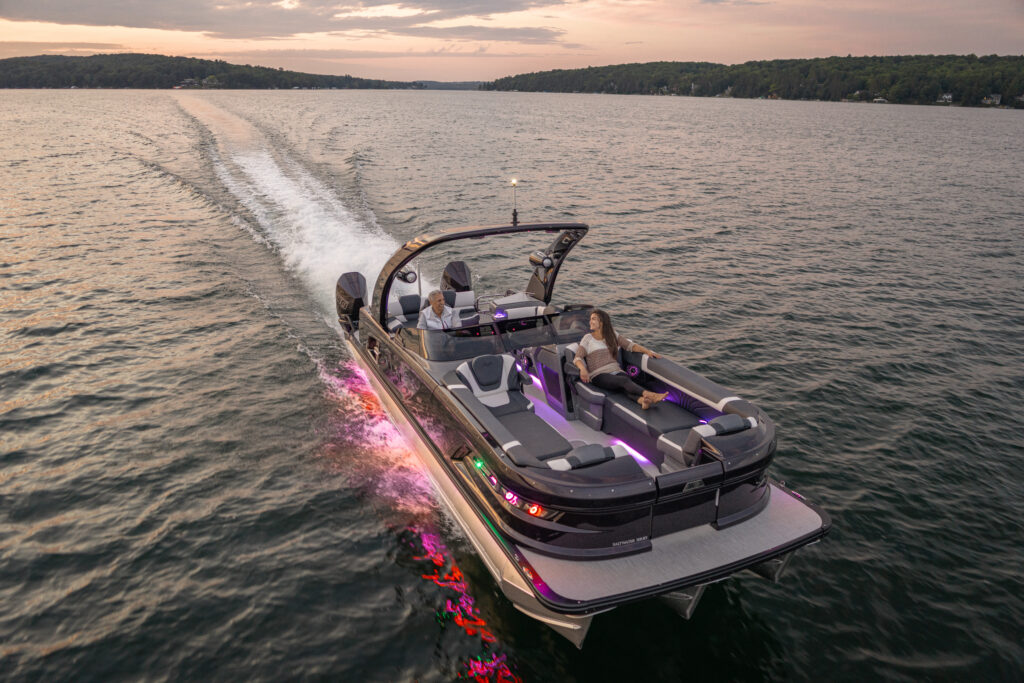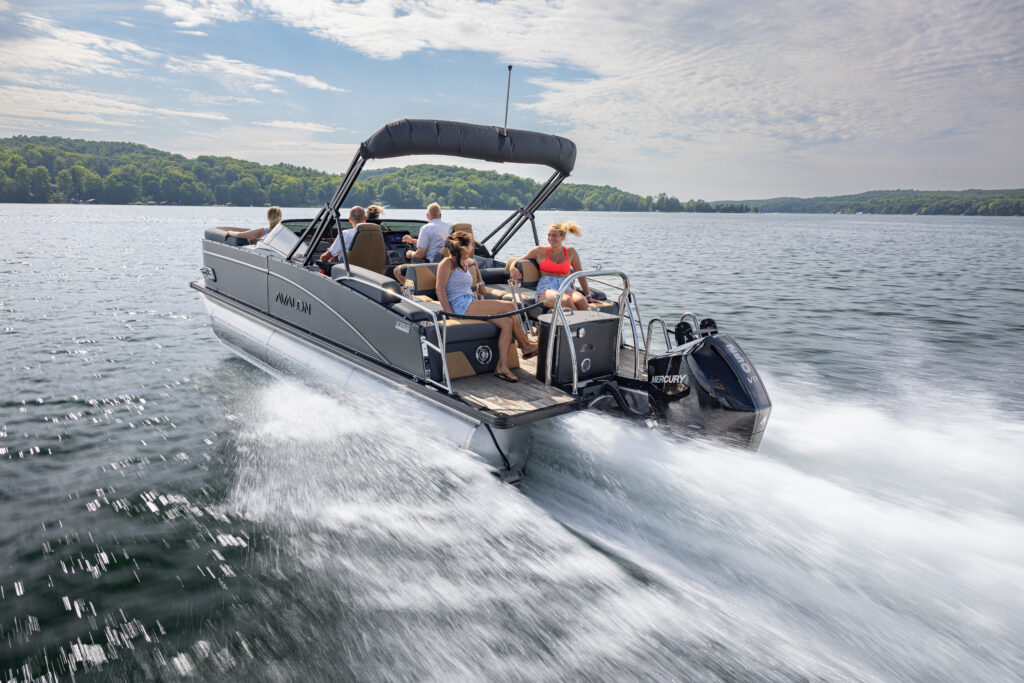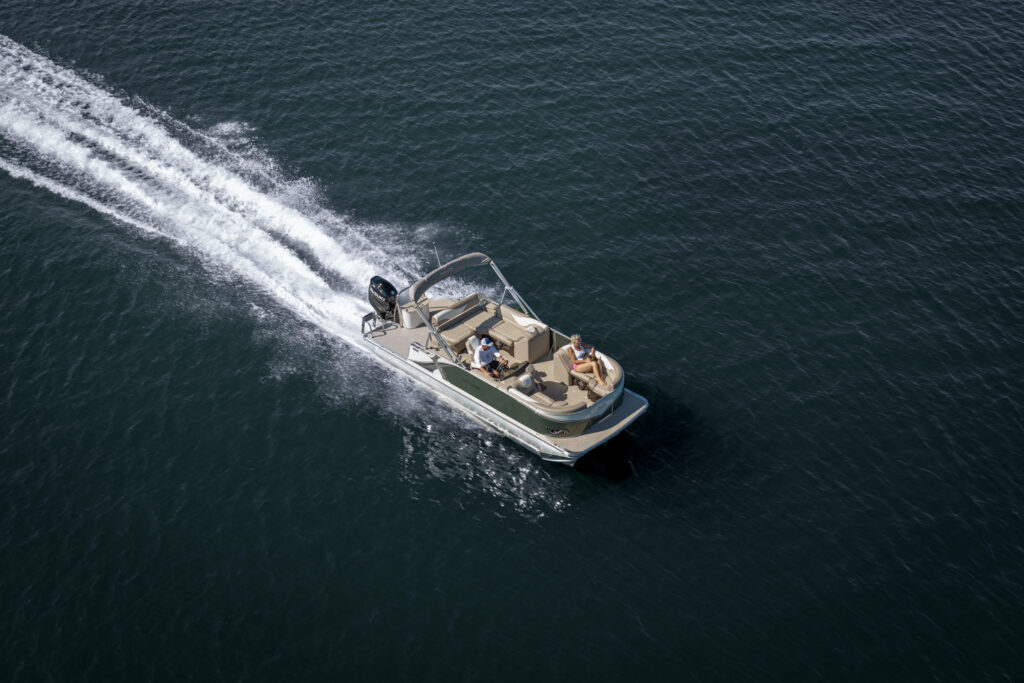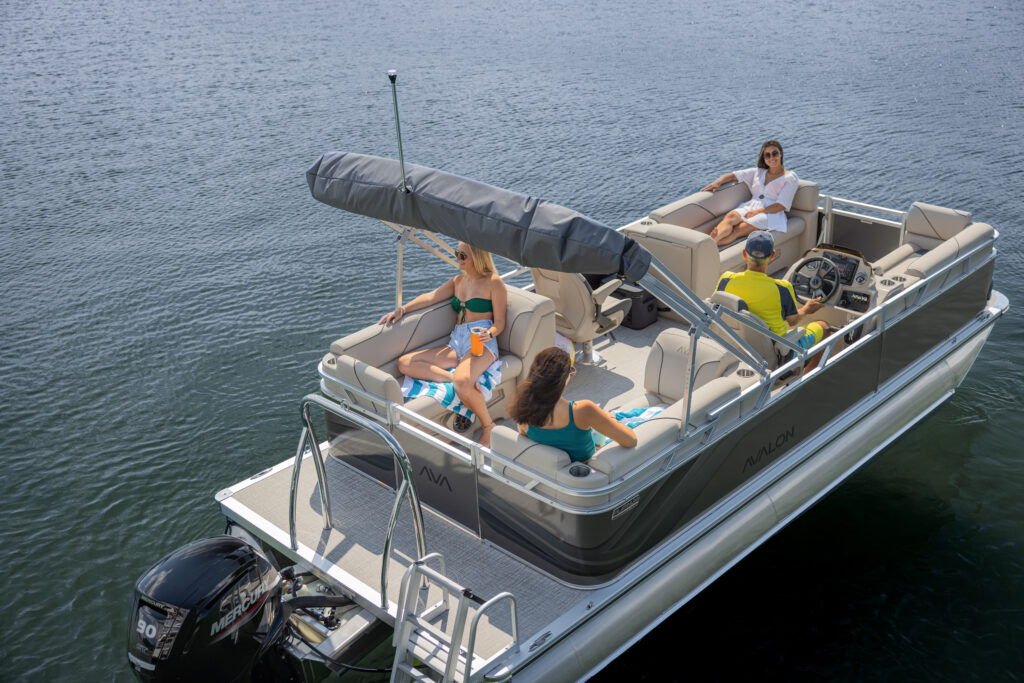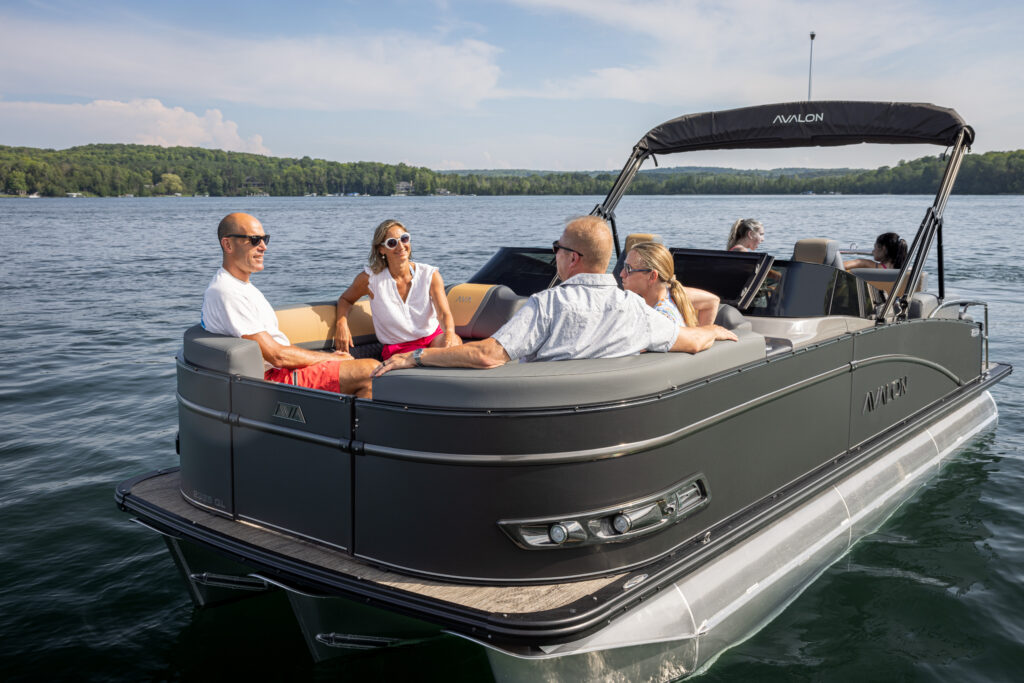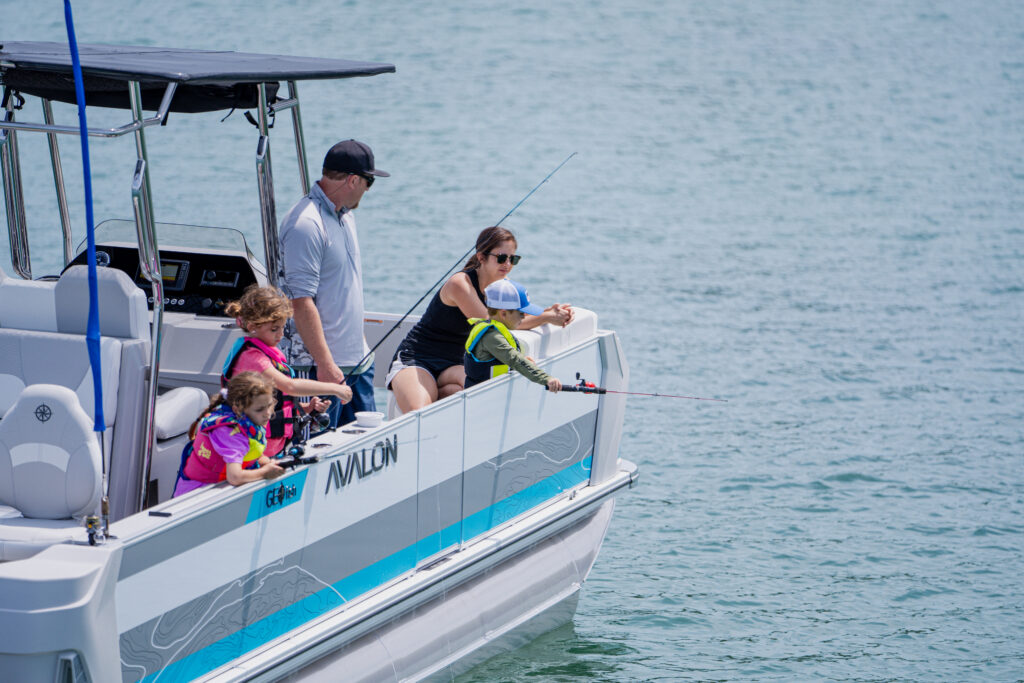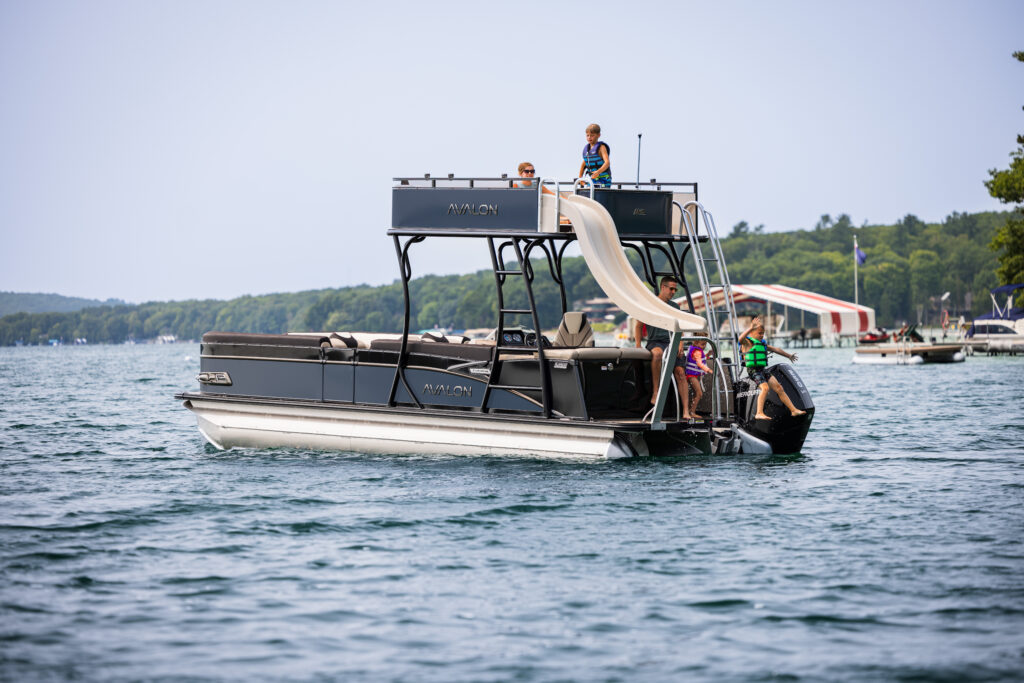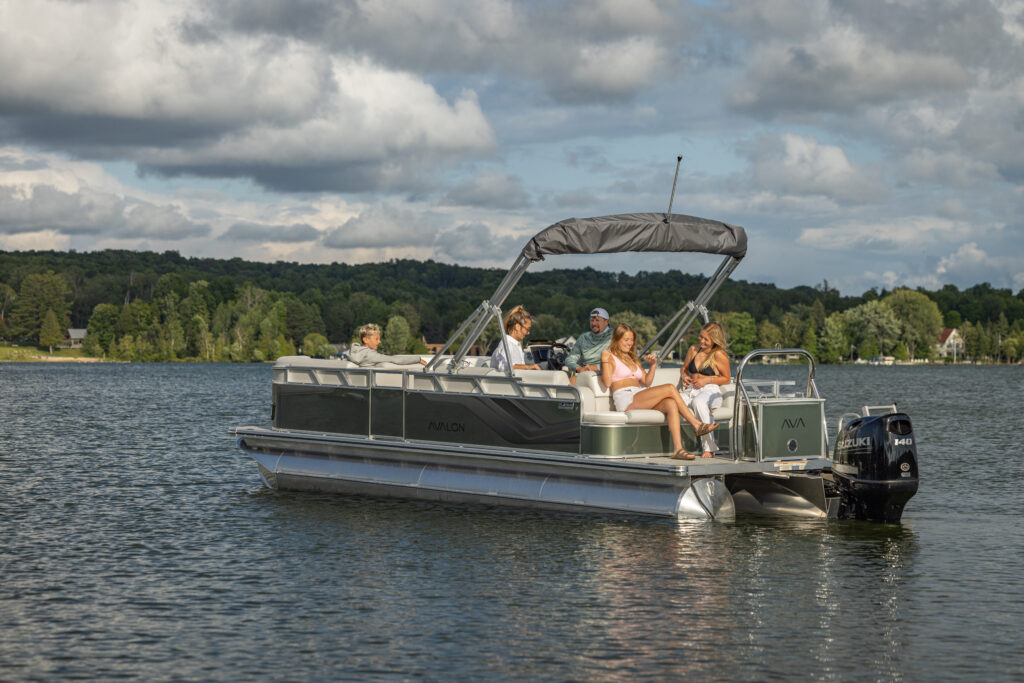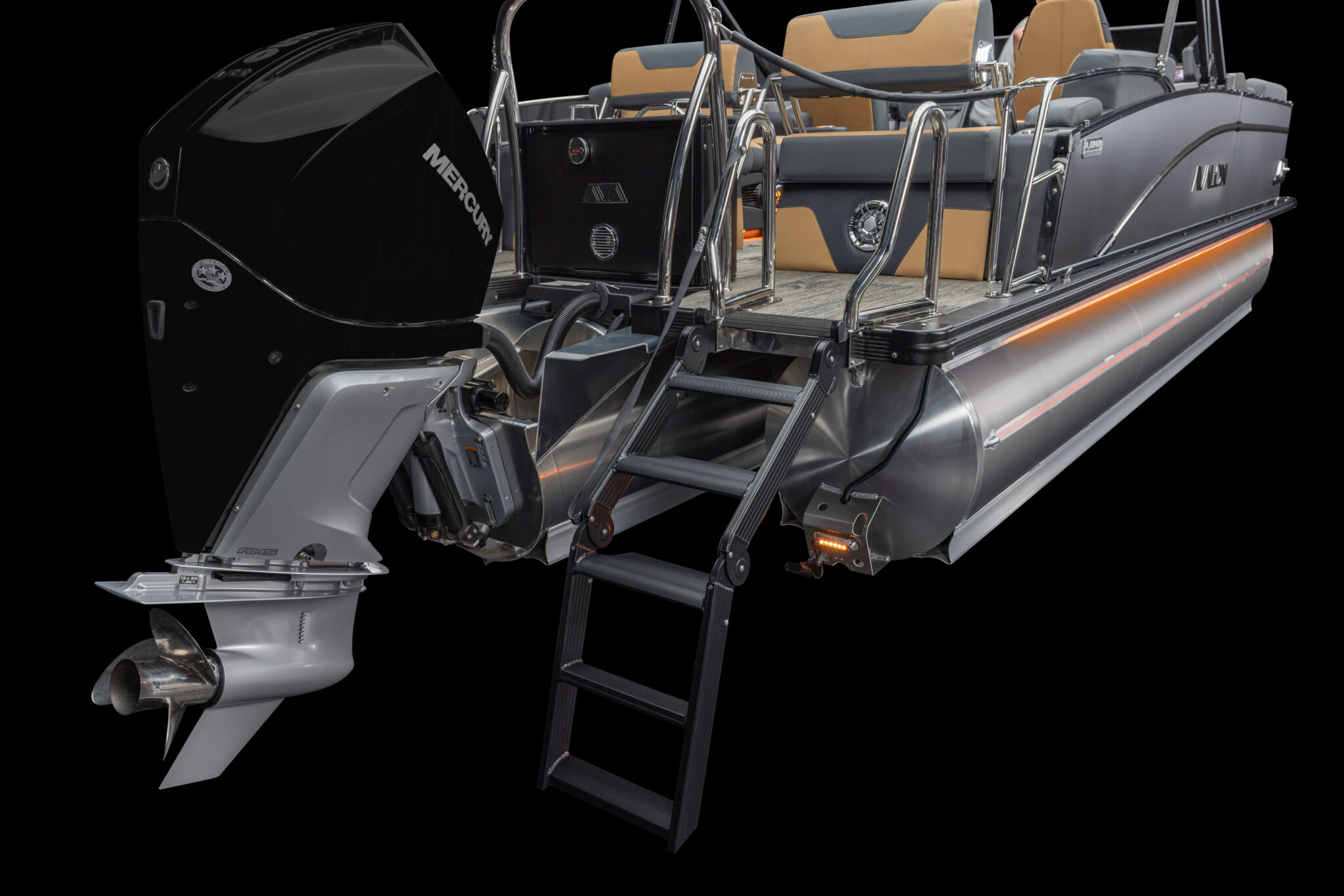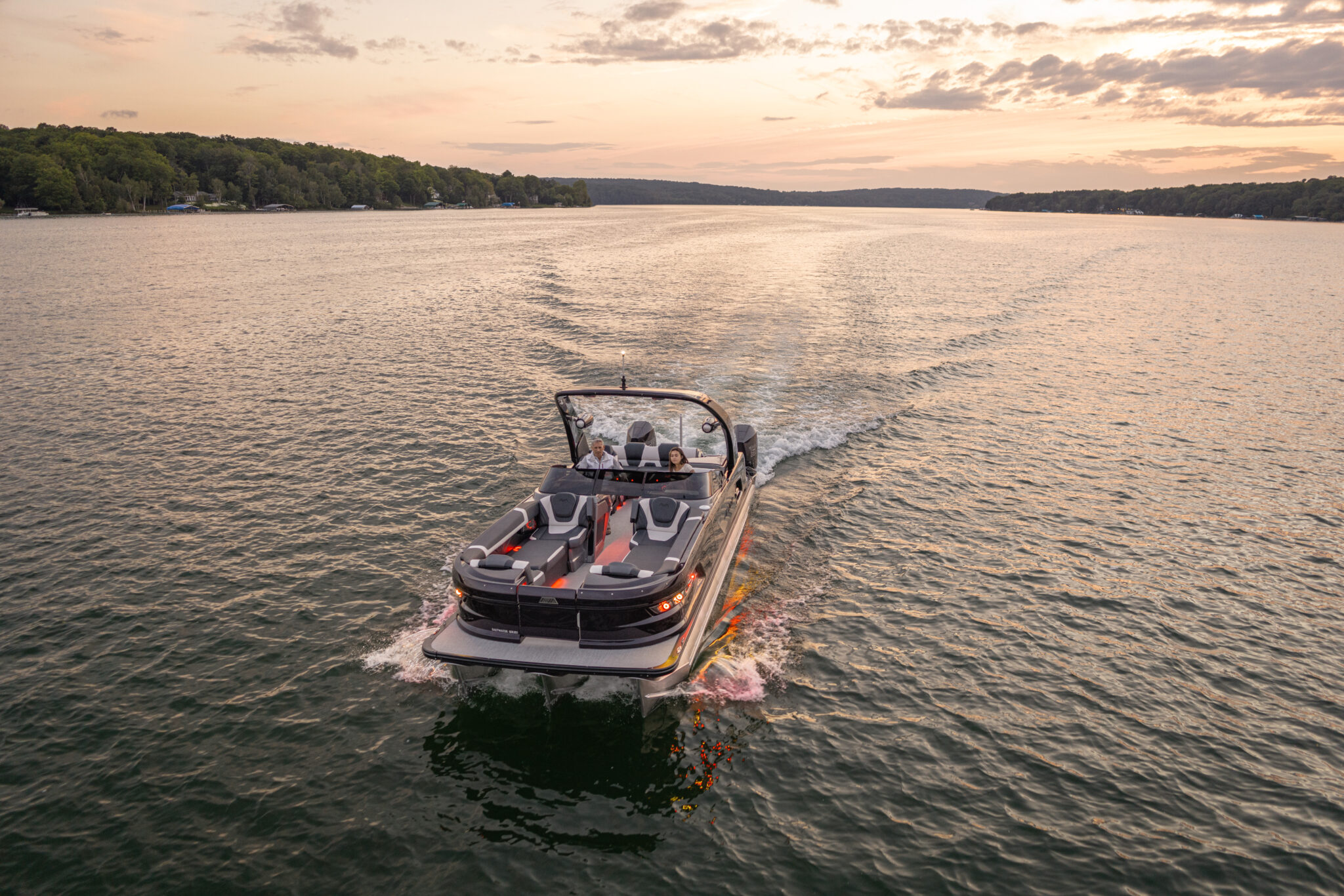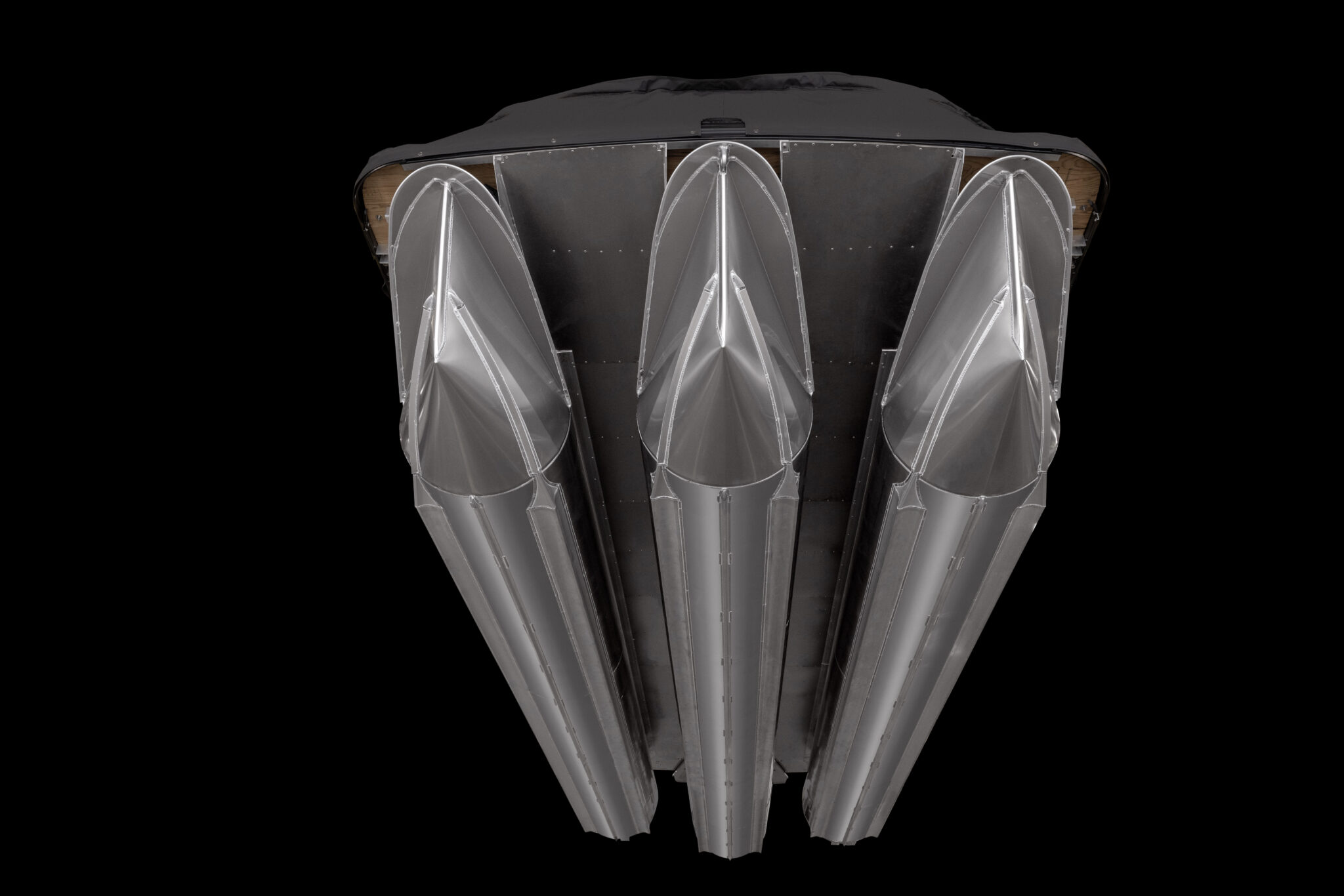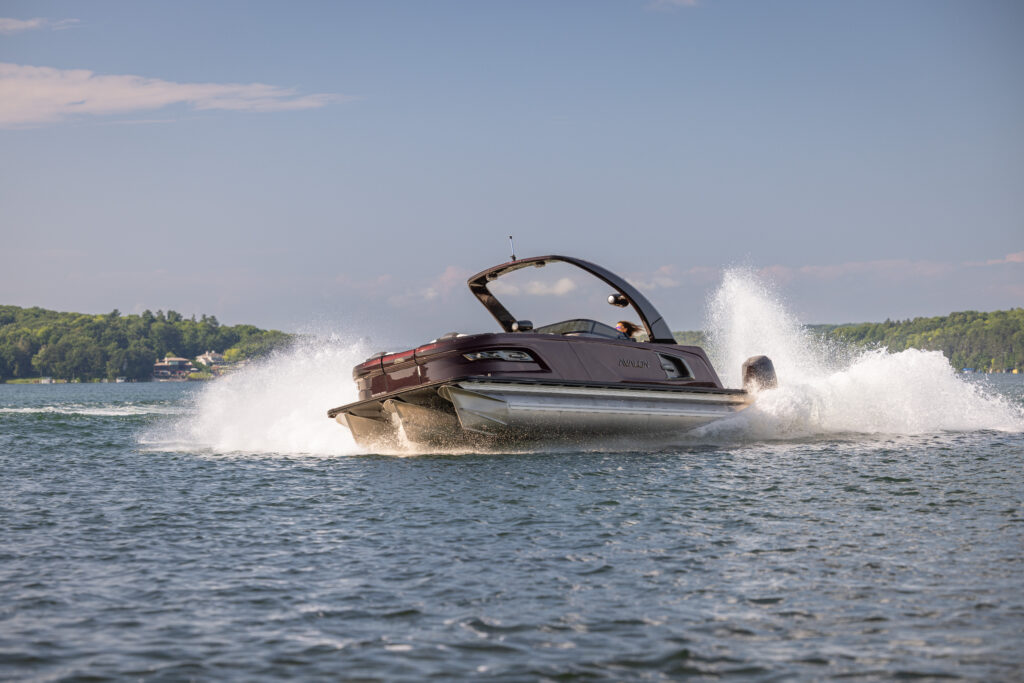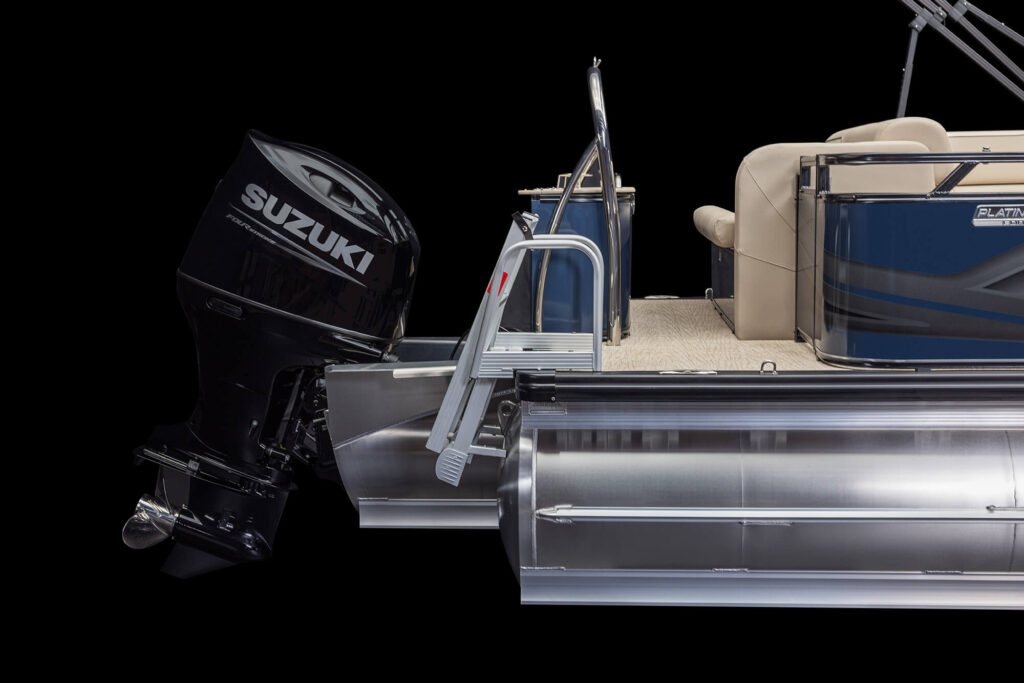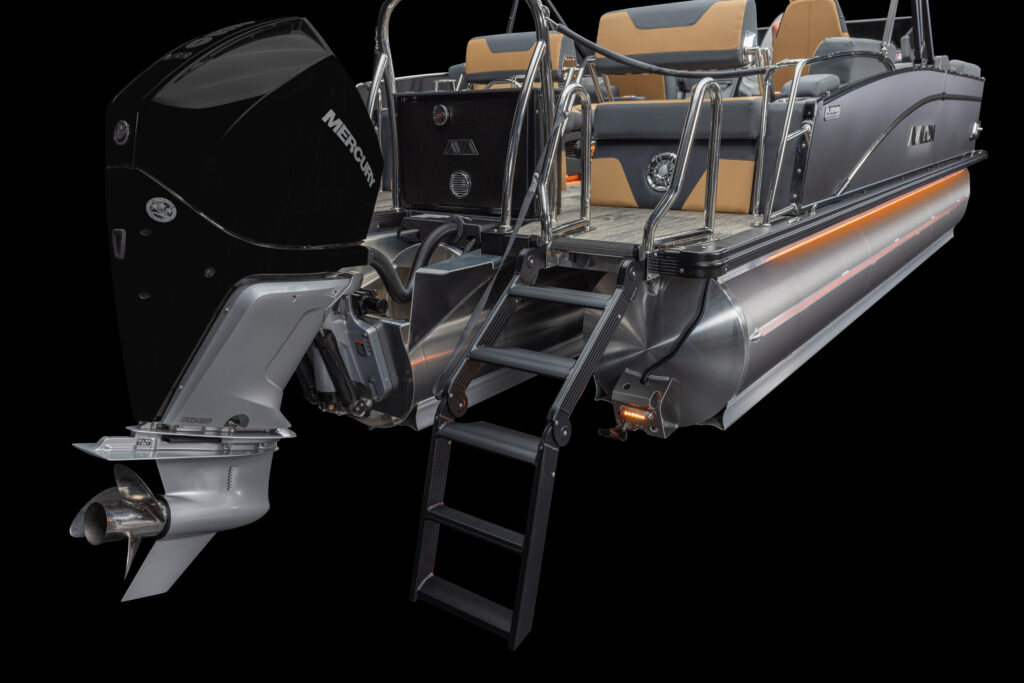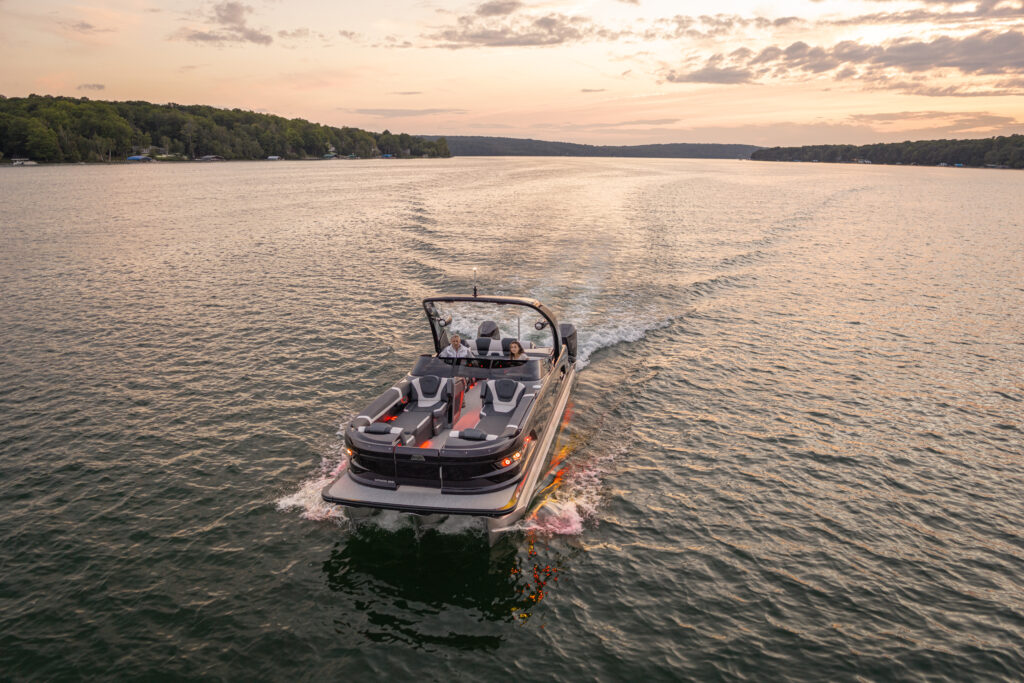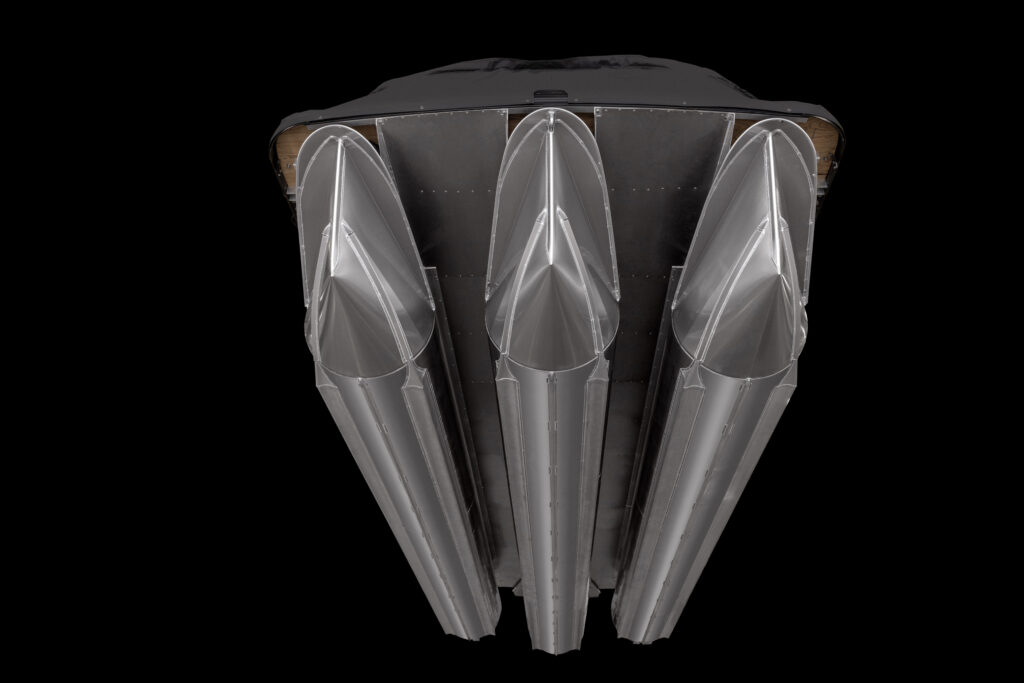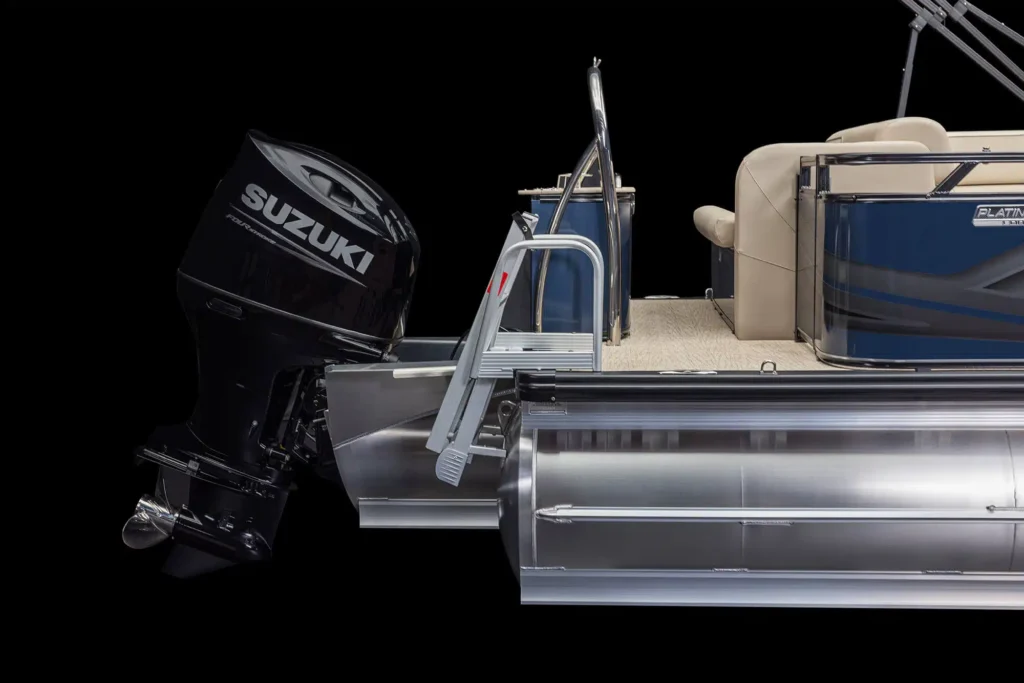Pondering a pontoon boat and wondering how it stacks up against a deck boat? It’s important to consider that each type of boat will boast different specifications, such as varying passenger capacities, maximum speeds, and abilities to handle choppy waters.
Pontoon boats have become more popular than deck boats because they are generally more comfortable and provide a smoother ride. Deck boats are generally faster and are thus a better fit for water sports, although pontoons have steadily improved their performance features.
Let’s compare the two watercraft to examine both the traits they share and those that set them apart. With this breakdown, buyers can assess the pros and cons of purchasing a deck boat vs pontoon boat to choose the right one for realizing their ultimate boating dreams.
Purpose & Performance
How do you plan on spending your days out on the water? Which water-based activities will your new boat entail? These practical preferences can help guide what type of boat will work best.
Deck boats are made of fiberglass, so they are more expensive to manufacture, store, and maintain. Although deck boats used to perform better in saltwater, pontoons can now be easily and effectively outfitted with packages and components to perform well in coastal waters.
Thanks to increasing demand and development, pontoons are now generally able to do a wider variety of activities than deck boats. Once at the top of their game for functional group water outings, deck boats are gradually becoming less popular than pontoons.
Style & Fashions
When narrowing down your new boat choices, it’s wise to weigh your stylistic preferences. Do you tend to lean towards a classic aesthetic, or do modern upgrades appeal to you more?
A standout feature distinguishing a deck boat vs pontoon is style. Deck boats tend to resemble runabouts and speedboats in appearance, while pontoons have adopted a sleeker, more refined, and eye-catching look. Plus, pontoons sit higher in the water on aluminum toons.
In some ways, pontoons seem like a more advanced version of deck boats, but both deck boats and pontoons have evolved with time and technology, each offering impressive capabilities and an attractive appearance.
Capacity & Speed
Deck boats initially rose to popularity as a high-speed vessel fit for groups. Their size makes it easy to comfortably entertain many people at once, and they tend to be outfitted with high horsepower engines, making them a great option for water sports.
Some of these two styles of boats’ features are similar, while others are distinct. Pontoons are similar in capability and capacity to deck boats, and they come with the added bonus of various newer, popular innovations. In fact, pontoons are often constructed to be even roomier than deck boats.
Generally, pontoons are a bit more spacious, and both boat styles can comfortably seat a group. Pontoons provide a wide platform structure more conducive to walking around the vessel. Deck boats’ V-shaped hulls give passengers ample seating with less space to walk around.
Availability & Layout
Many multi-functional floor plans exist on the pontoon market, so layouts leave nothing to be desired. Pontoons also offer a variety of coveted add-ons, like water sports arches, livewells, fishing chairs, and even onboard bars. Deck boats, on the other hand, are less customizable and diverse in their floorplan variety.
Underseat storage and locker space beneath the floors provide plentiful supply space on both boating options. Pontoons, however, feature a newer style of in-floor storage, and even more in-floor ski locker space in the center toon of newer tritoons, allowing for larger, longer objects.
Moreover, as pontoons continue to advance, deck boats are becoming less in-demand and available. While deck boat brands appear to be dwindling, pontoon brands are booming. The trending nature of pontoons can make them more accessible for potential boat buyers.
Engine Options & Speed
The types of engines on each boat are an important factor to consider when comparing a deck boat vs pontoon style watercraft.
Outboard engines are practically the only option available for pontoons today. They range in horsepower from roughly 25-450. Horsepower on these vessels can be restricted based on the boat’s length as well. Due to limited horsepower, this type of engine makes high-speed activities like wake surfing less optimal on a pontoon.
Unlike pontoons, inboard/outboard (I/O) and outboard engines are both available options for deck boats. Also, because deck boats are smaller, they can more easily be equipped with larger, more powerful engines that can reach greater speeds.
How It Rides
Design and construction contribute a great deal to the type of ride each boat will provide on different bodies of water. The factors influencing how smooth the ride is includes features like engine, steering, and length specifications for each boat. For example, deck boats at low speeds can wander more and increase the difficulty of steering.
The body style of pontoons allows them to plane out promptly. Pontoons also have features designed to absorb much of the force from waves and chop, similar to car shocks. Plus, sitting high in the water means less spray and a lower likelihood of passengers getting wet on pontoons.
The V-hull style bows and flat stern hulls of deck boats allow them to plane out quickly, too. Still, the design of a deck boat is not quite as efficient, so a choppy ride tends to be bumpier on deck boats than on pontoons.
Final Thoughts
So, which party-friendly boat is perfect for creating your most idyllic memories on the water? The decision will depend on each individual’s own goals for their ideal boat.
Both deck boats and pontoon are great for group outings, with the former offering more comfortable lounging and high speeds for adrenaline-pumping water sports, and the latter giving riders a higher, drier, and smoother ride with more space to walk around.
When boat shopping, navigating the various offerings of each unique option will be key to making the perfect selection to bring absolute satisfaction when you finally navigate the waters on your beautiful new boat.

